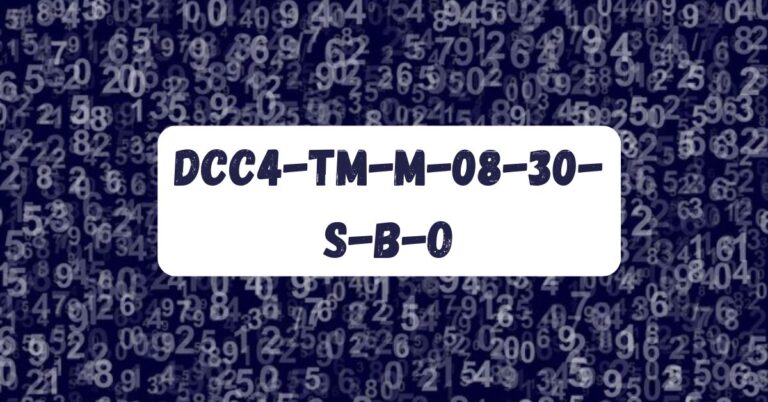Riley Affenhance Redirect: What It Is and How to Avoid It
In today’s digital landscape, browsing the internet comes with its own set of challenges—one of which is dealing with intrusive redirects. One common issue users encounter is the Riley Affenhance Redirect, a disruptive phenomenon that often stems from adware, malicious websites, or aggressive affiliate marketing tactics. These redirects can significantly affect your browsing experience by pushing you toward unwanted pages, pop-ups, or even harmful sites, ultimately compromising your security and privacy. While some redirects might be part of legitimate advertising strategies, many users find these disruptions intrusive and frustrating.
What is Riley Affenhance Redirect?
Riley Affenhance Redirect is a type of unwanted web redirection that occurs when malicious scripts, adware, or aggressive marketing tactics interfere with your browser’s normal behavior. This redirection can lead users to unfamiliar, often intrusive sites, resulting in slowdowns, security breaches, and privacy concerns. While some of these redirects may stem from legitimate advertising efforts, many users experience frustration when redirected to unknown pages without their consent. In essence, Riley Affenhance Redirect refers to the deliberate manipulation of browser traffic, often with the intention of driving revenue through affiliate links or exposing users to harmful content.
Redirects can sometimes occur due to compromised websites or adware that is embedded in applications, toolbars, or browser extensions. These redirects can lead to pop-ups, unwanted advertisements, and, in the worst-case scenario, malicious sites that could steal sensitive information or install harmful software. Users affected by Riley Affenhance Redirect often feel frustrated, as these unwanted redirects compromise their browsing experience, waste their time, and put their privacy at risk.
Common Causes of Riley Affenhance Redirect
Understanding the causes of Riley Affenhance Redirect is essential to effectively address and prevent these disruptions:
- Adware: Ad-supported software applications, which are often bundled with free downloads or accessed through shady websites, inject advertisements into your browsing experience. These ads may contain redirect scripts that push users toward unfamiliar pages.
- Malicious Websites: Many compromised websites contain hidden codes designed to trigger redirects. These malicious sites may appear legitimate but operate with the intent to exploit users by redirecting them to other harmful or fraudulent pages.
- Browser Extensions: Browser extensions, whether they’re tools meant to enhance productivity or those meant for security, sometimes include malicious scripts. These scripts can hijack your browsing sessions by injecting redirects into your search results or website visits.
- Affiliate Marketing Tactics: Legitimate affiliate marketing programs can sometimes use aggressive techniques, such as redirects, to earn revenue from users clicking through to specific products. However, in some cases, these tactics can push users to unfamiliar and untrustworthy websites.
Signs You’re Experiencing Riley Affenhance Redirect
Knowing the signs of Riley Affenhance Redirect can help you identify and address the issue before it becomes more severe:
- Frequent Redirects: Unexpected redirects to unfamiliar or strange websites, often when you click a search result or visit a seemingly innocent page.
- Pop-Up Ads: Excessive pop-ups, often appearing when clicking on links, which redirect you to other websites or advertisements.
- Slow Browser Performance: A noticeable slowdown in how quickly your pages load or frequent freezes in browser behavior.
- Changes to Browser Settings: Unintentional modifications to your browser settings, such as changes to your homepage, search engine, or toolbars.
These symptoms typically indicate that adware or malicious scripts have hijacked your browser, causing frequent redirects that compromise your online experience.
How to Identify Riley Affenhance Redirect
To accurately determine if you’re experiencing Riley Affenhance Redirect, you can take these steps:
- Monitor Your Browsing Activity: Pay close attention to any unusual redirects while navigating through websites. If you find that your browser is sending you to unknown pages often, it’s likely due to malicious interference.
- Run a Malware Scan: Utilize reputable antivirus or anti-malware tools to perform a thorough scan of your system. These tools will help detect any hidden files or software responsible for redirects.
- Review Browser Extensions: Inspect the browser extensions installed on your system. Disable or remove any extensions that you don’t recognize or those that seem suspicious. Malicious extensions frequently carry scripts that can trigger redirects.
Steps to Fix Riley Affenhance Redirect
If you’re already dealing with Riley Affenhance Redirect, here are practical steps to help resolve the problem:
- Update Your Browser: Keeping your browser updated with the latest security patches can help prevent vulnerabilities from being exploited by adware or malicious sites.
- Use Reliable Anti-Malware Software: Run a full scan with trusted antivirus tools to detect and remove any malicious programs that might be causing redirects.
- Clear Browser Cache and Cookies: Cached files and cookies can sometimes retain settings that cause redirects. Clearing these can help eliminate saved configurations that trigger unwanted behavior.
- Review and Remove Browser Extensions: Uninstall browser extensions that are unnecessary or untrusted. Some browser extensions contain scripts that manipulate your browsing sessions and can lead to redirects.
- Reset Browser Settings: If redirects persist even after taking preventive measures, consider resetting your browser settings to their default configurations. This can help remove any custom configurations that are causing the redirects.
Preventing Riley Affenhance Redirect
Preventing Riley Affenhance Redirect is the best approach to avoid ongoing disruptions. Here are some strategies to keep your system safe:
- Only Visit Trusted Websites: Avoid clicking on unfamiliar or unknown links. Stick to reputable and well-known websites that you can trust.
- Install Reliable Antivirus Software: Use reputable antivirus software and keep it updated to monitor your system for potential threats before they become a problem.
- Regularly Update Software: Ensure that your browser, extensions, and operating system are all updated with the latest security patches. This helps protect you from newly discovered vulnerabilities.
Conclusion
Riley Affenhance Redirect is a frustrating issue that stems from adware, malicious websites, and aggressive marketing tactics. By understanding the causes, recognizing the symptoms, and taking proactive steps, you can protect your system from these intrusive redirects. Stay vigilant, keep your software updated, and make sure to use trusted tools to safeguard your online activities.
FAQs
What exactly is Riley Affenhance Redirect?
Riley Affenhance Redirect refers to unwanted web redirections caused by malicious scripts, adware, or affiliate marketing tactics that force users to visit unfamiliar or harmful websites.
Is Riley Affenhance Redirect harmful?
Yes, it can be harmful. Redirects caused by adware can expose you to security breaches, slow down your browsing, and even install unwanted programs.
How can I tell if my browser has been infected with adware?
Look for frequent redirects, excessive pop-ups, slow browser performance, or changes to your browser settings that you didn’t make yourself.
Can I fix Riley Affenhance Redirect myself?
Yes, by scanning your system for malware, disabling suspicious browser extensions, clearing cache, and updating your browser, you can often resolve this issue.
Are all redirects part of Riley Affenhance Redirect?
No, not all redirects are associated with this issue. Legitimate redirects may occur in normal browsing, but aggressive or malicious redirects are the focus here.







